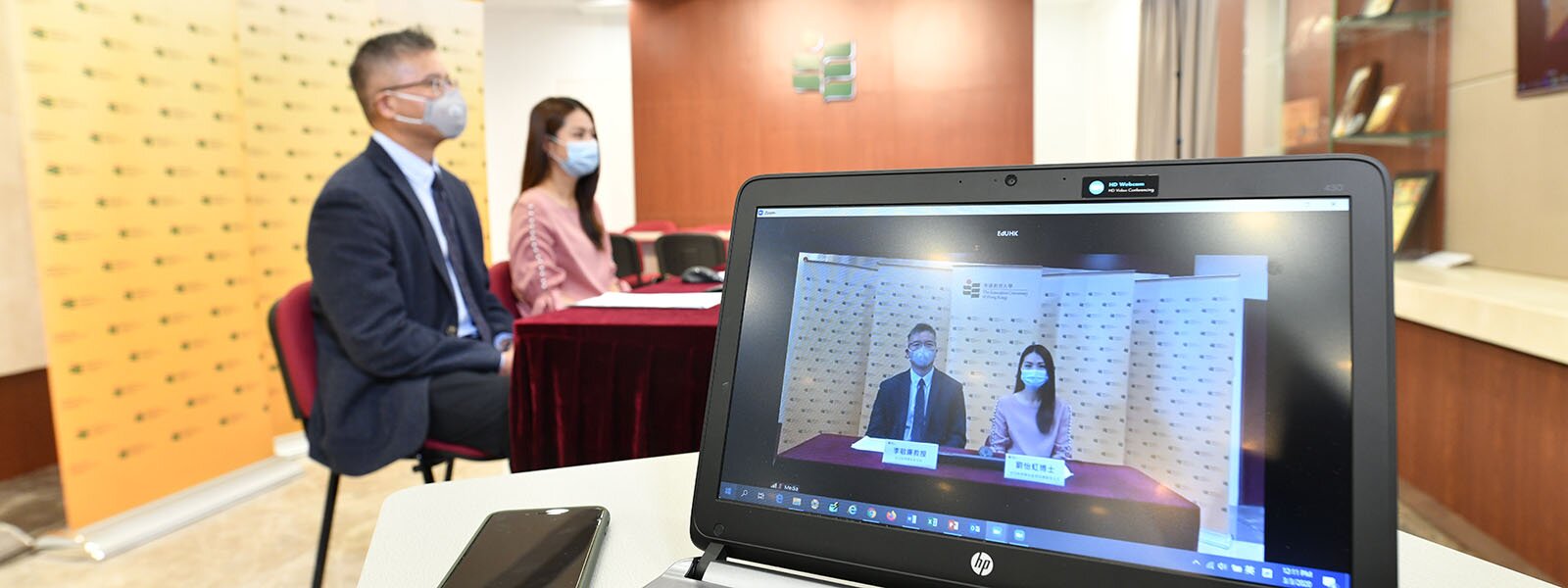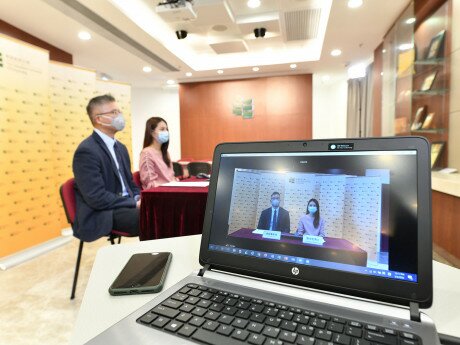Survey: Nearly 70% of Parents Find Their Children Have Difficulty Learning at Home
Survey: Nearly 70% of Parents Find Their Children Have Difficulty Learning at Home
The persistent COVID-19 epidemic has resulted in all classes being suspended in Hong Kong, followed by the need for students to learn at home. According to the latest survey conducted by The Education University of Hong Kong (EdUHK), however, nearly 70% of kindergarten parents and over 80% of primary school parents find that their children have trouble learning at home, and they are worried about their children falling behind. The survey also found that the prolonged class suspension has resulted in increased exposure to electronic screens, and that guidelines for schools to facilitate online learning are needed.
Conducted by the Department of Early Childhood Education between 19 and 22 February 2020, the survey successfully collected responses from 6,702 parents of kindergarten students and primary school students via social media platforms*, to help understand the students’ learning conditions, their use of electronic screen products, the difficulties encountered by their parents and the kind of support they need during the suspension of classes.
Among the parents who indicated difficulties encountered by their children in the process of learning from home, over 70% reported that their children did not have the concentration or learning interest required, while nearly 50% were troubled by interruptions by other family members. Other difficulties included insufficient resources or support, and lack of patience and relevant knowledge on the parents’ part.
Table 1: Difficulties encountered in the process of performing learning tasks at home (respondents could choose more than one item)
| Kindergartens | Primary schools |
|---|---|---|
Children’s lack of concentration / interest | 73.9% | 70.7% |
Interruption by other family members | 50.1% | 48.9% |
Lack of resources / support | 45.4% | 40.9% |
Lack of patience to teach on the parents’ part | 33.9% | 32% |
Lack of time on the parents’ part | 26.1% | 24.8% |
Lack of relevant knowledge on the parents’ part | 23.1% | 33% |
Insufficient space | 18.5% | 13.5% |
Unclear instructions | 13.3% | 35.6% |
Other | 11.9% | 20.7% |
More than 70% of parents of kindergarten students and 80% of parents of primary school students indicated that online learning activities have been provided by schools during class suspension. Some 35% of parents of kindergarten students and almost half of parents of primary school students were not satisfied about the online learning arrangements. The main reasons were lack of support from the school (almost 50%) and insufficient communication between the school and parents (around 30%).
Table 2: Reasons given for unsatisfactory results from online learning (respondents could choose more than one item)
| Kindergartens | Primary schools |
|---|---|---|
Lack of support from school | 48.5% | 50.6% |
Too few types of tasks | 31.6% | 15.4% |
Insufficient communication between parents and schools | 30.4% | 36.3% |
Not enough work | 27.2% | 14.1 |
Tasks take too little time | 20.9% | 10% |
Tasks take too much time | 20.2% | 41% |
Tasks are too easy | 18.3% | 12.3% |
Too many types of tasks | 17.3% | 43.5% |
Too much work | 17.0% | 34.5% |
Tasks are too difficult | 12.6% | 28.1% |
The survey found that most of the online learning materials were pre-recorded videos or resources available on other learning platforms, rendering the learning process mainly one way. The survey also found that the needs of parents of kindergarten students were different to those of primary school students. Parents of kindergarten students in general felt that the learning activities the schools provided lacked variety, and they expected more diversified learning, while most parents of primary school students found that their children had too many different tasks to complete and that the work took too much time, resulting in a heavy burden on parents.
The class suspension has also led to a sharp rise in the amount of time students spend using electronic screens. Nearly 80% of the parents of kindergarten children said their children were spending over an hour a day using electronic screens, exceeding the maximum recommended by the World Health Organisation. Nearly 40% of the parents of primary school students said that their children were spending over 4 hours a day using electronic screens. It is noteworthy that most of the time, the children were using these products without the company or guidance of adults.
Table 3: Average time children spend daily using electronic screens during class suspension (including studying and entertainment)
| Kindergartens | Primary schools |
|---|---|---|
None | 2.3% | 0.5% |
Less than 1 hour | 18.5% | 6.0% |
1 to 2 hours | 28.1% | 16.6% |
2 to 3 hours | 20.2% | 20.7% |
3 to 4 hours | 13.7% | 18.4% |
More than 4 hours | 17.3% | 37.8% |
Dr Eva Lau Yi-hung, Associate Head and Associate Professor in the Department of Early Childhood Education at EdUHK, who was in charge of the survey, pointed out that although online learning has been promoted in Hong Kong for many years, this is the first time it has been applied for such a long period of time on a mass scale. As a result, all parties – schools, students and parents – need time to get used to the mode, in particular very young students. "Young kindergarten students cannot complete the learning tasks on their own, so they need parental help," said Dr Lau. "Without relevant support, parents with limited education will naturally feel pressurised." Dr Lau advised that schools should learn from the experience to find out what kind of support is needed by parents during the class suspension and to make more effort to communicate with parents.
Dr Lau also pointed out the adverse impact on students' health from the increased exposure of children to electronic screens during the class suspension. She advised schools to work on a balance of types of learning during the class suspension by introducing diversified activities, both on and off-line, to trigger learning interest. Schools should also look for ways to minimise the time the students spend on electronic screen products.
To better support online learning, the Department of Early Childhood Education will launch a series of webinars starting this month. By providing concrete counsel and support for parents and teachers, Professor Kerry Lee, Head of the Department of Early Childhood Education, hopes to empower parents and equip teachers to become effective educators to help students to continue learning despite the class suspension.
Appendix: Survey Findings
* Special thanks to the POPA Channel for the assistance in recruiting respondents for the survey.
Photo Gallery
Download all images








